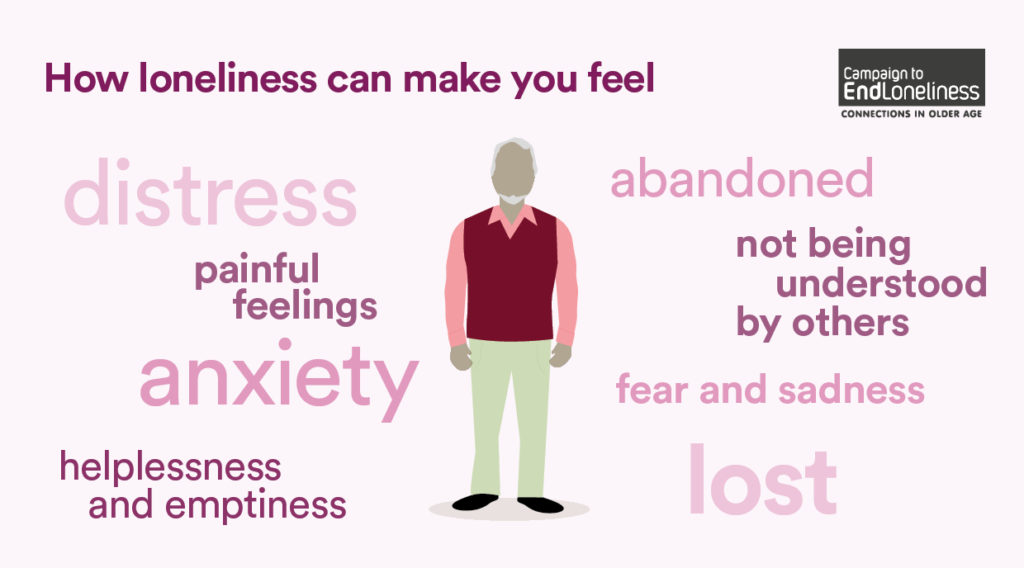Loneliness is seen by many as one of the largest health concerns we currently face because it is reckoned that loneliness, living alone and poor social connections are as bad for your health as smoking 15 cigarettes a day. (Holt-Lunstad, 2010); is worse for your health than obesity (Holt-Lunstad, 2010) and lonely people are more likely to suffer from dementia, heart disease and depression (Valtorta et al, 2016; James et al, 2011; Cacioppo et al, 2006).
There are 1.2 million chronically lonely older people in the UK and half a million older people go at least five or six days a week without seeing or speaking to anyone at all (Age UK, 2016).
So this week the Campaign to End Loneliness has published a new report called The Psychology of Loneliness, which looks at how psychology can change how lonely people think and feel.
We know a lot about the factors that can lead to older people feeling isolated and excluded and the life events that can contribute or trigger loneliness in later life. However, we know much less about the ‘internal’ factors that can shape someone’s experience of loneliness and cause loneliness to become more severe. As loneliness is a subjective emotional response we need to understand its impact on individuals if we want to tackle it.
Understanding how psychological approaches can help ease feelings of loneliness and shape our response can help us improve support for older people who are lonely. The new report looks at how we can use psychology to help the millions who feel lonely. You can access the full report by CLICKING HERE.

